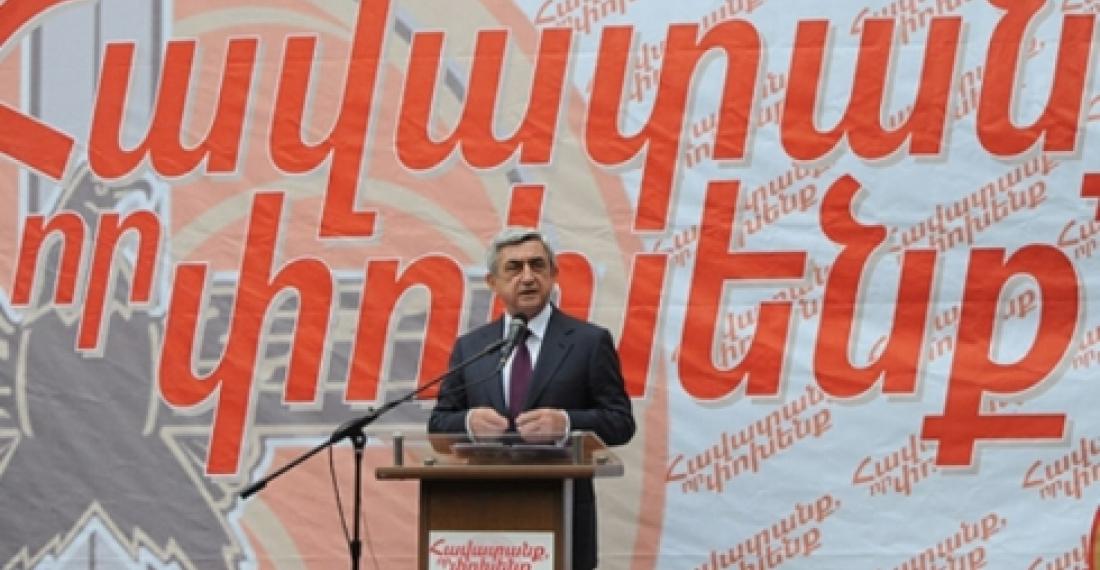Armenian President Serzh Sargsyan told voters in the Armenian border region of Noyemberyan that relations with Azerbaijan cannot be improved without mutual trust.
According to Armenian media sources, Sargsyan told voters whilst campaigning for next month's Presidential elections that he is often asked about how relations with Azerbaijan can be established. "I cannot say anything optimistic about this", added Sargsyan. The President said "It is impossible to solve this problem without free will, without mutual trust. And if the problem is not solved, then this state of relations will continue, softening or sharpening at times. I say this with such ease in front of you, the residents of the bordering region. And do not really worry about all that. Of course, our common goal is to have a neighbor with whom we can peacefully coexist. All we want, to eliminate losses in our army. Most of all, I would like us to cut spending on the military needs for ten times, to ensure the peaceful development of the country. But now the defense spending for us is necessary, so that the results of our work not to slip through the fingers."
Commonspace.eu political editor said in a comment: "This was the second time during the campaign that president Sargsyan has referred to the impact of the defence spending on Armenia's development. The President's message is clear, that the current Armenian leadership will do whatever it takes to maintain military parity with Azerbaijan as long as the two countries are in a state of war with each other. Many Armenians empatise with this view and the president knows that this comes across as a reasonable argument with the electorate. On the other hand not everybody in Armenia agrees. Some insist that it is only through economic and social development that Armenia can achieve strength. Balancing these two priorities is likely to bne Sargsyan's biggest challenge once he is elected, as expected, on 18 February."
source: commonspace.eu
photo: President Sargsyan speaking at a political rally in May 2012 (picture courtesy of the Press Service of the Armenian President.).






